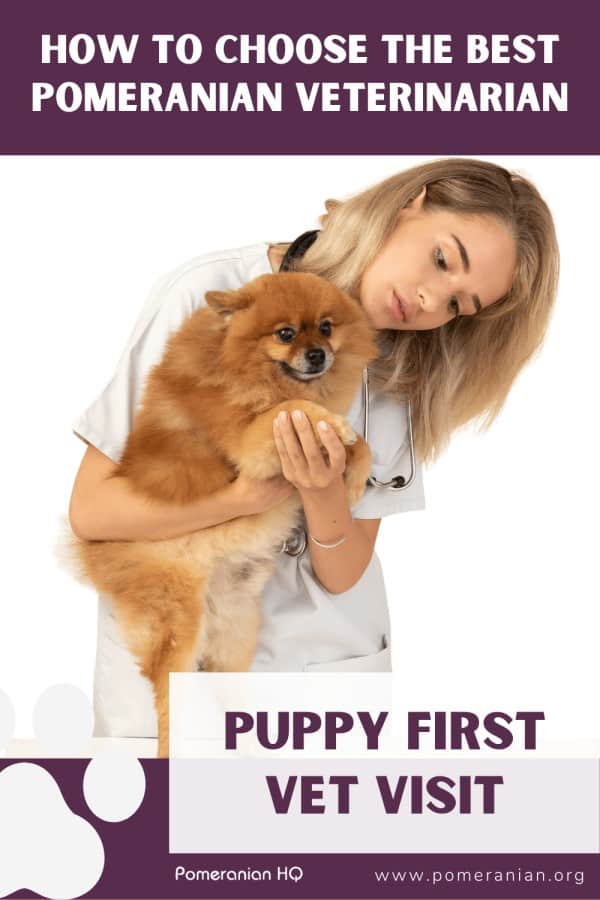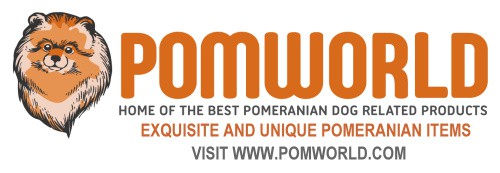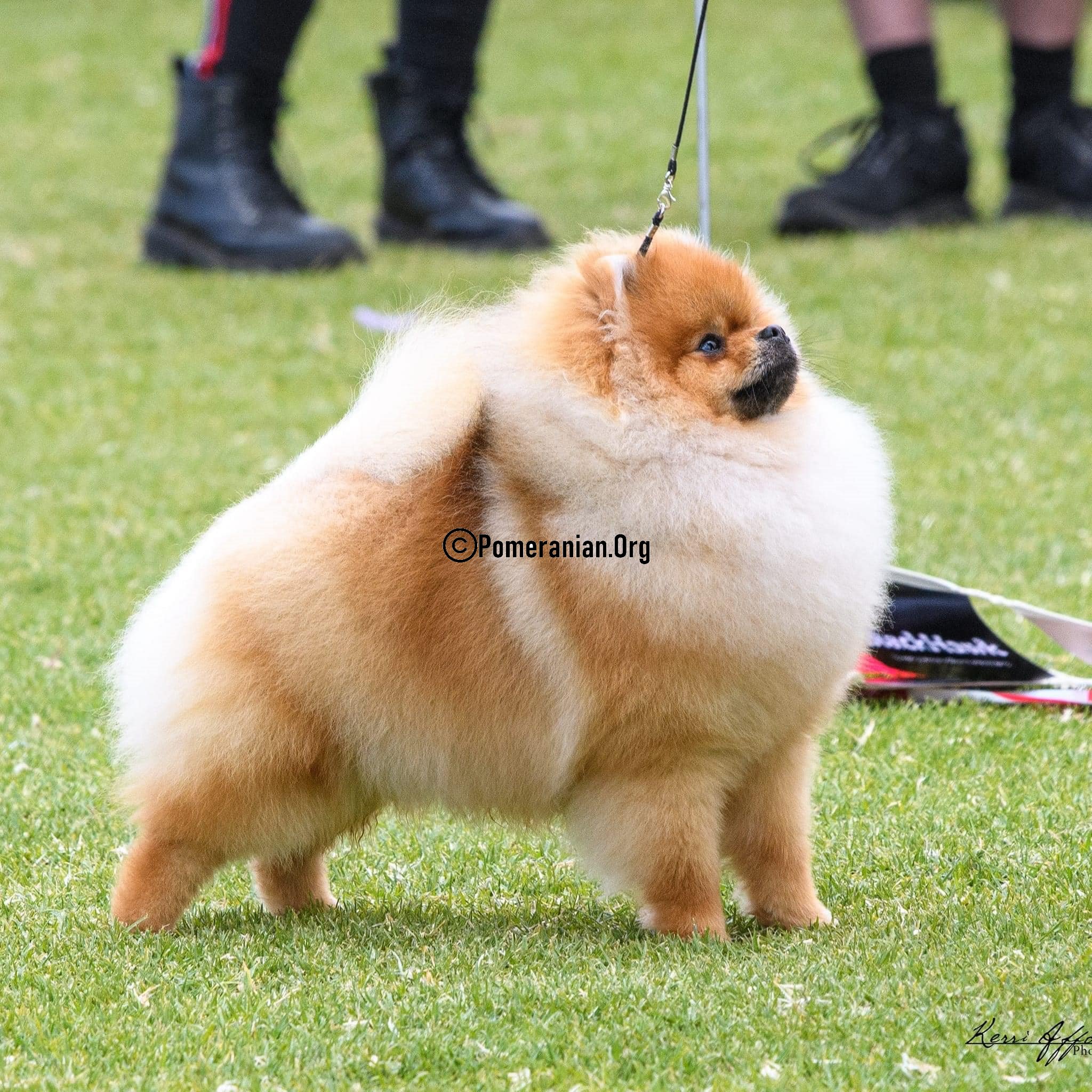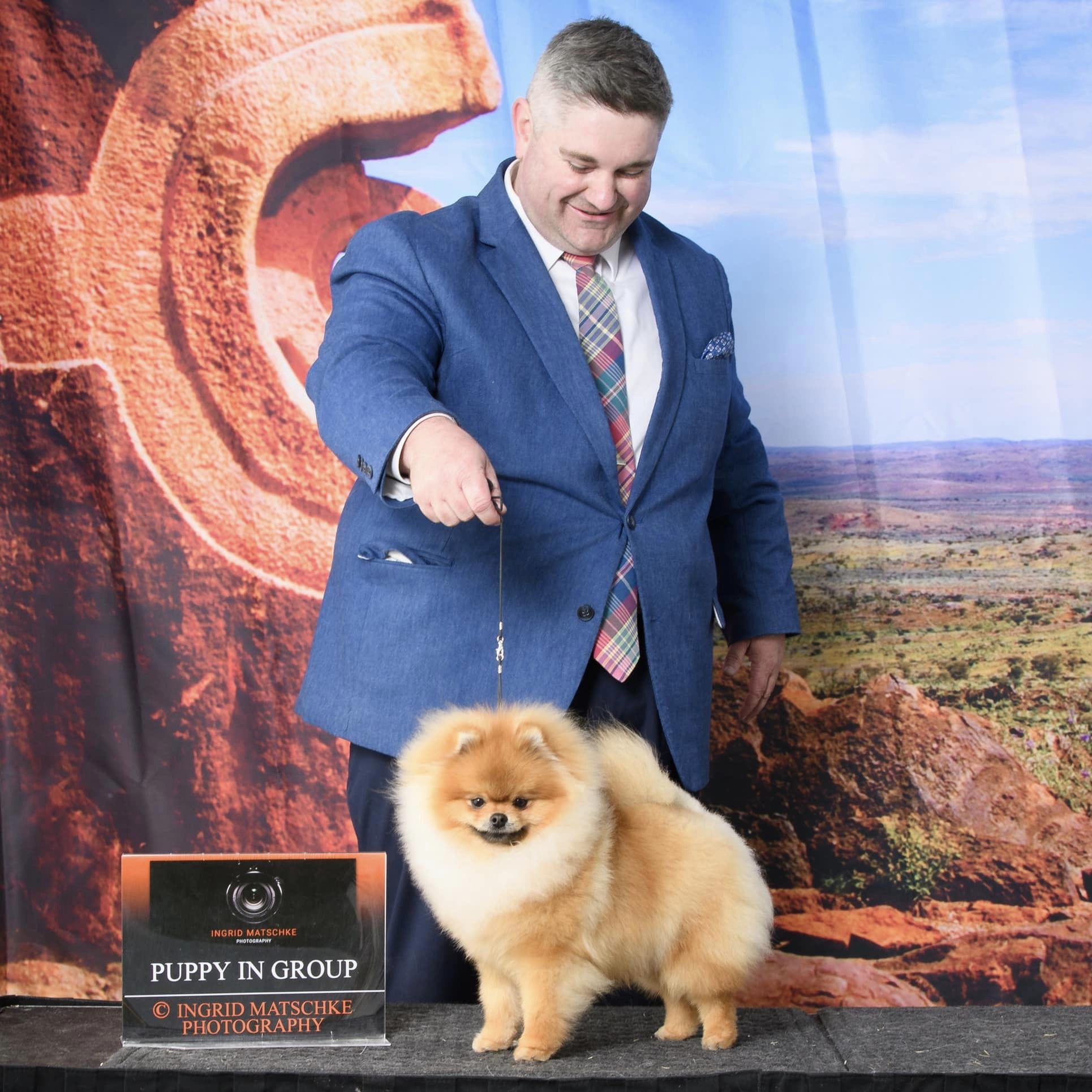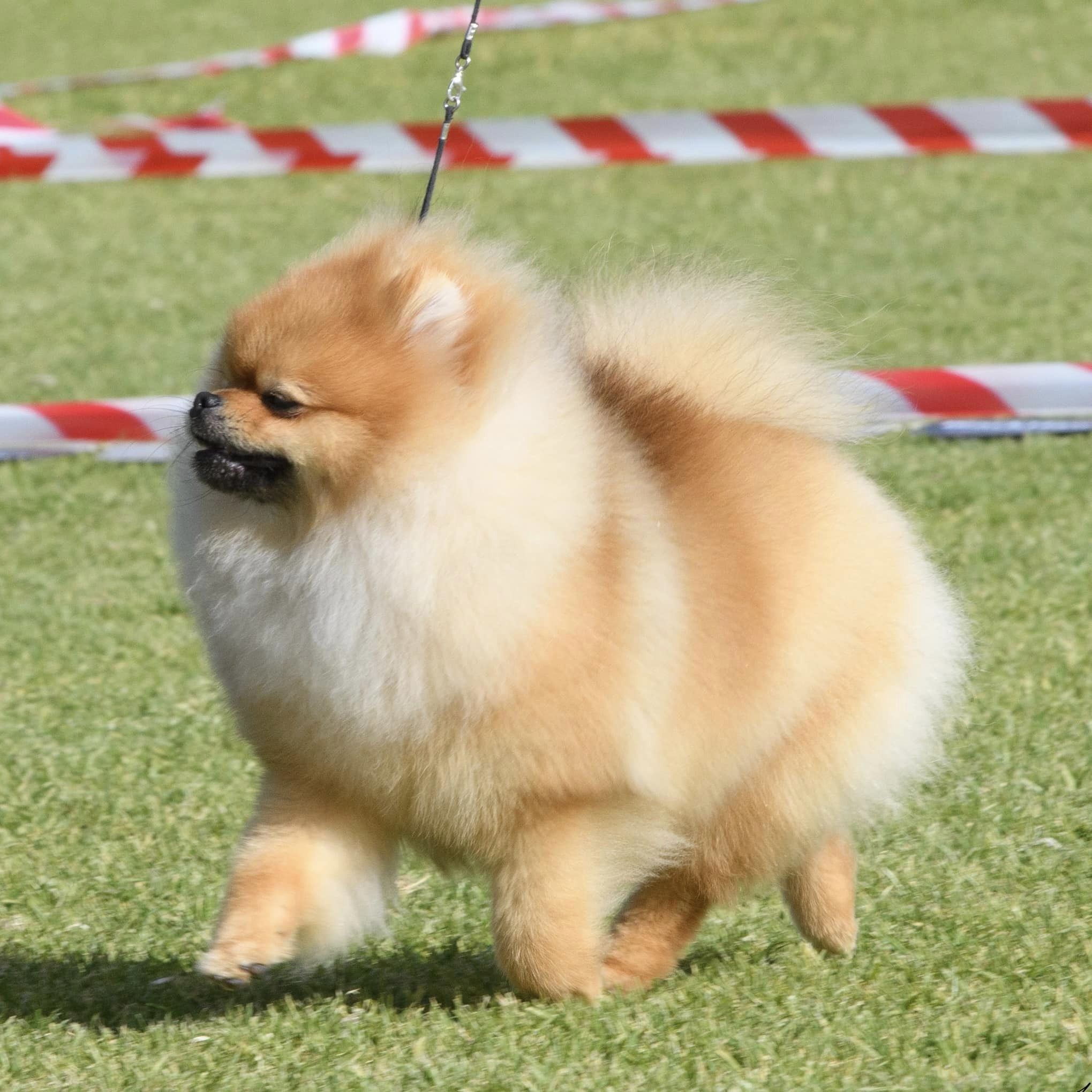Last Updated on 29/11/2023 by Dochlaggie. Post first published on October 4, 2023.
When it comes to the care and well-being of our beloved Pomeranians, nothing but the best will do. With their spirited personalities, these petite, fluffy canines have unique health and care requirements that set them apart from other breeds.
This is where the role of a specialized Pomeranian veterinarian becomes invaluable. Their deep understanding of the breed’s specifics, from dental to dietary needs, ensures that our Poms receive the most accurate and dedicated care.
In this post, we’ll delve into the importance of seeking a Pomeranian veterinarian and how their expertise can make all the difference in your pet’s health journey. Let’s embark on this enlightening path together!
This article will help ensure a Pomeranian dog’s first vet visit is a happy experience. A puppy first vet visit checklist is included, and, for new owners, a puppy first vet visit questions to ask. Puppy first vet visit information.
After reading through that list of potential illnesses, you may feel overwhelmed and stymied by the prospect of owning a Pomeranian. You shouldn’t be.
Choosing a good breeder will assure you of getting the best possible puppy. Verifying with the breeder that he has completed all the genetic testing and the beginning puppy vaccinations will give you a head start to raising a healthy puppy.
Another thing that will help you raise a healthy Pom is choosing the best Pomeranian veterinarian that is right for your family and your Pom. Choosing a family veterinarian is as important as choosing a family doctor.
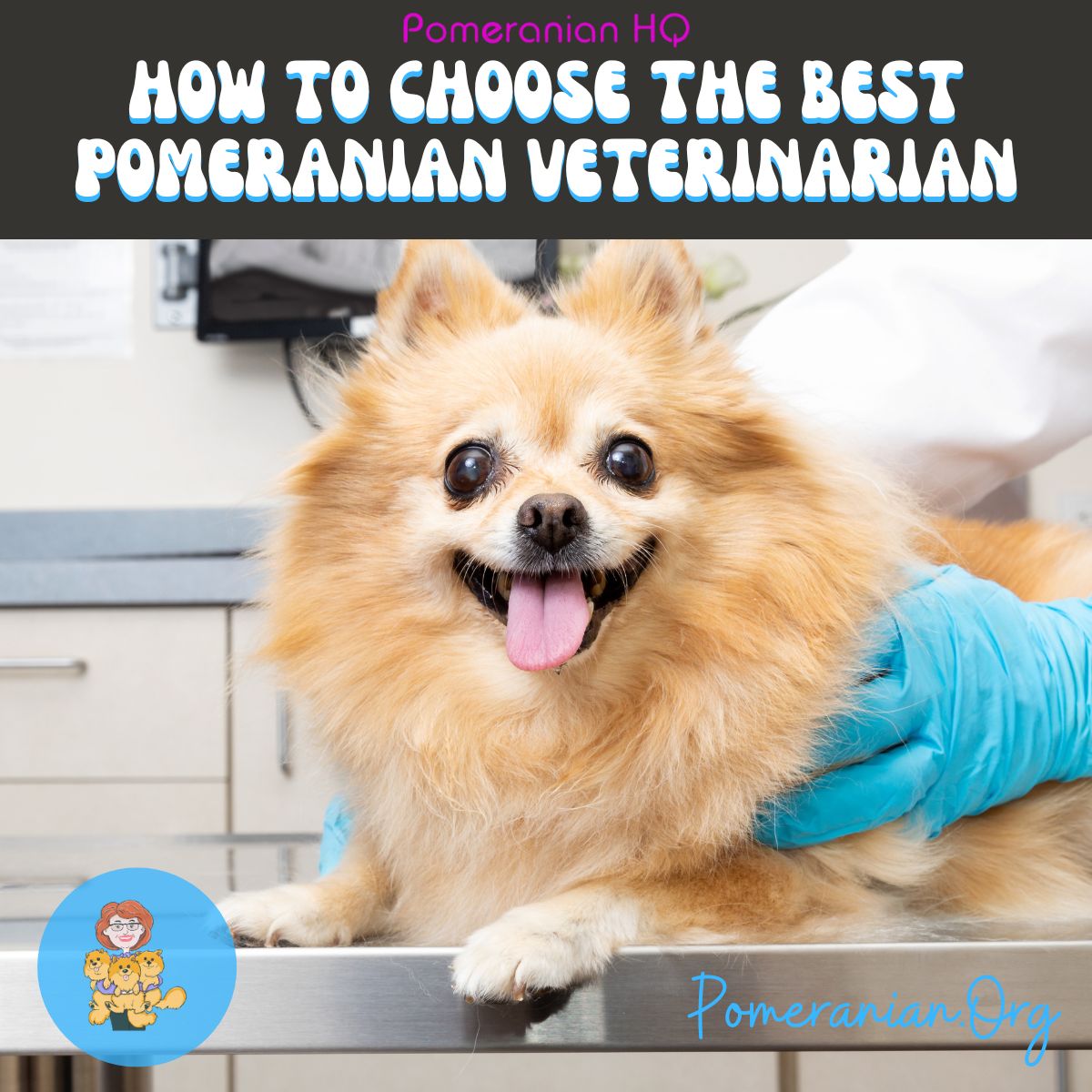
The Best Pomeranian Veterinarian
You want a friendly, intelligent veterinarian willing to work with you. Do some research before you bring home your Pomeranian or soon after.
It’s always better to have a family veterinarian chosen before a medical problem arises. Word of mouth is a good way to begin searching for your veterinarian. Ask around.
Talk to your friends, family, and co-workers about who they use as their family veterinarian. Other wonderful people to ask for veterinarian recommendations are your breeder, obedience class teacher, or groomer.
How to Find the Veterinarian Best for Pomeranian Dogs
Remember, not all veterinarians specialize in small animals. Some are strictly large animal veterinarians. Of the veterinarians recommended to you, which are strictly small animal or dog-specific veterinarians? Vets specializing in Pomeranians probably don’t exist.
You will want to choose a veterinarian that is fairly close to your home. You don’t want to be two hours away in an emergency.
Also, check on their office hours. Are they open on Saturday?
Do they have late hours so you can make appointments after work? Do they have an emergency number you can call after hours?
After you narrow your choices down, visit their offices and ask questions.
- Do they take emergencies?
- If they don’t, do they have a recommendation for what to do in an emergency?
- Is there an emergency hospital nearby that he refers to?
- Ask the veterinarian if he is familiar with Pomeranians and the medical conditions that sometimes arise. Has he had previous experience with any of these conditions?
- Is he the only veterinarian in the office, or does he have partners?
- Will you always see him, or will you sometimes see the other veterinarians?
- Visit with his team of employees, such as the receptionist. Are they friendly and considerate?
- Are appointments needed, or do they take walk-in clients?
- Listen to how the veterinarian answers your questions. Is he friendly and willing to talk?
- Or is he short with his answers and too busy to speak with you?
- Does his office provide any other services, such as grooming or boarding?
Take a look around at his facility:
- Is it clean and well-managed?
- Does it smell?
- An important factor in choosing a veterinarian is, of course, cost. If you feel comfortable asking, determine his general care fees, such as checkups or vaccinations.
- Also, do they take credit cards? Will he be willing to work with you on payments if something expensive happens, such as the need for surgery?
If you choose a veterinarian affiliated with an animal hospital instead of a private practice, check to see if the hospital is a member of the American Animal Hospital Association (AAHA). Veterinarians can also be board-certified in a particular area of medicine, such as cardiology or surgery.
Choosing a responsible veterinarian is only part of the job. You must also learn how to be a good client. Learn what is normal with your Pomeranian and be able to recognize if there is something wrong enough to warrant a visit to your veterinarian.
- Visit your veterinarian regularly for checkups and always make appointments.
- Always be on time for your appointments.
- Never let your Pomeranian run loose in the office.
- Always keep him on a leash and preferably in your arms.
Call to see if the veterinarian is available if you have an emergency. If he’s not, request a referral to a nearby hospital or emergency service. And most importantly, don’t call your veterinarian after hours for questions that can be answered during the workday. Veterinarians have lives, too.
Asking these questions when choosing a veterinarian and then following the suggestions about how to be a good client will ensure that you receive the best possible care from your veterinarian when you need it, and you can develop a long and lasting relationship.
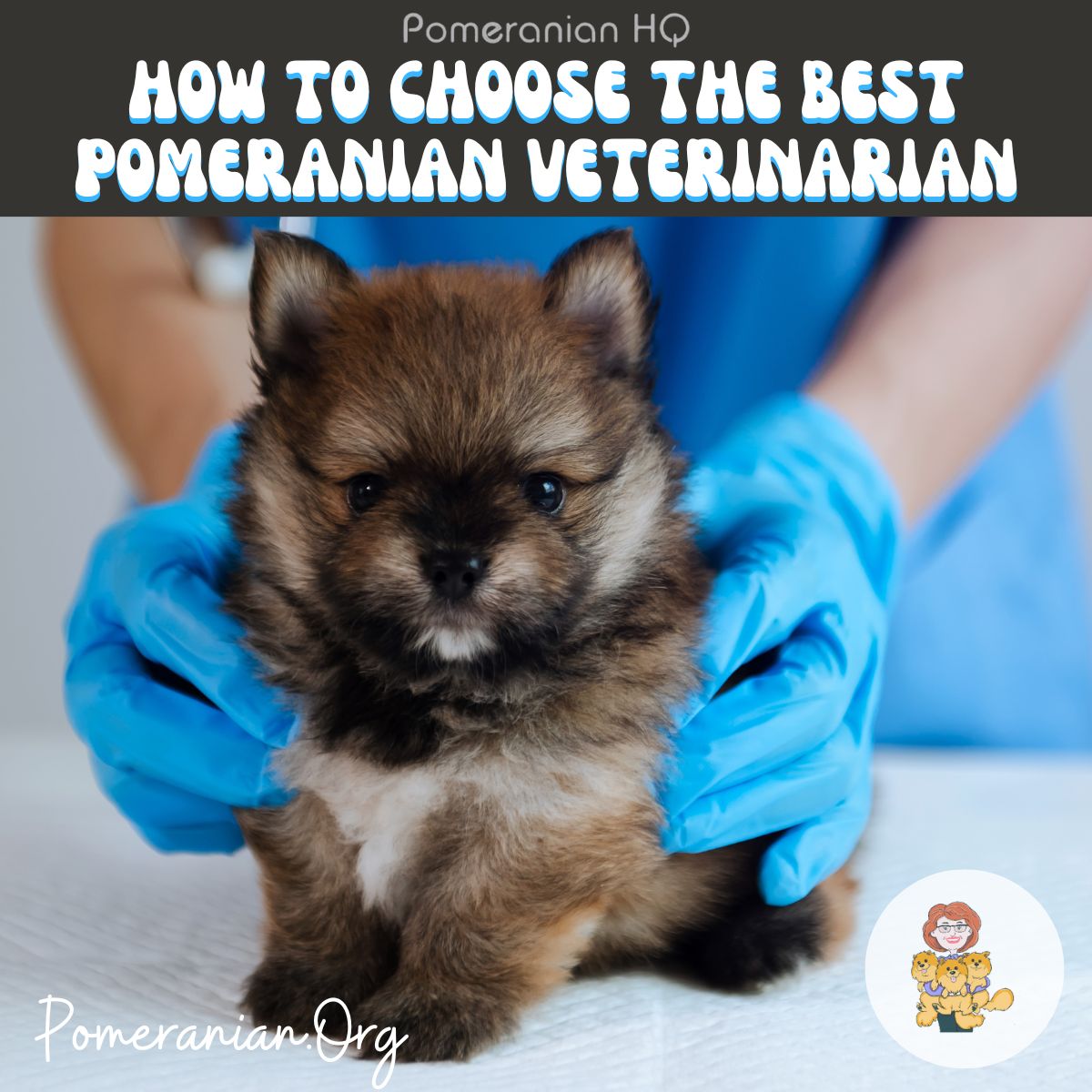
Puppy First Vet Visit
Taking your dog to the vet for the first time can be a daunting experience for some new puppy owners. A new puppy vet check should be a happy experience for the owner and the puppy.
When you get your new Pomeranian puppy home, you should ring and book a first vet appointment for a puppy. The breeder’s contract may even include a specified period in which the new puppy’s vet check must be done to maintain good health.
The puppy’s first vet visit needs to be successful. The initial visit to the vet carries more importance than any further visits. Your puppy needs to realize that vet visits can be fun. To ensure this happens, follow a few tips.
Take all records from the breeder when you go to the vet. Also, provide a stool sample so your vet can check for the presence of parasites.
Place your puppy in a small crate or travel bag during the trip. While sitting in the waiting room, ensure he’s as close to you as possible, and don’t bark at other animals. Other owners will appreciate this as they may have sick pets.
Have some of his favorite treats for the vet to make him comfortable during the exam. It’s wise to avoid cavity searches and needles during the first visit unless it is crucial. If so, ask the vet to use the smallest gauge needle possible so the puppy barely feels it.
During this visit, the vet will advise you on common problems for puppies (e.g., worms) and how to treat them. He’ll also want to talk to you about the puppy’s vaccination schedule.
Puppy First Vet Visit Checklist
- He’ll listen to your pet’s heart to ensure no unusual issues.
- Your puppy will be weighed.
- His gums and teeth will be thoroughly checked.
- His eyelids and eyes will also be checked.
- Knees might be checked to see if there are early warning signs of patellar weakness.
- Some vaccinations may already be due; he’ll administer them as gently as possible. The time frame will vary depending on the age of your puppy.
Puppy First Vet Visit Questions to Ask
Before you leave his clinic, ask all questions you may have. Also, make the next appointment for further vaccinations. If your puppy is quite nervous, you can visit the clinic sometimes to sit there and get him used to the waiting room.
If he has some visits where nothing “bad” occurs, he’ll grow more comfortable with the vet and other staff. They’ll always appreciate this extra attention as it makes their job much easier for all future visits.
If you buy an adult Pomeranian, he still needs a check-up within a few days. The vet will check him out thoroughly, much like he would for a puppy, but will most likely also do a heartworm check.
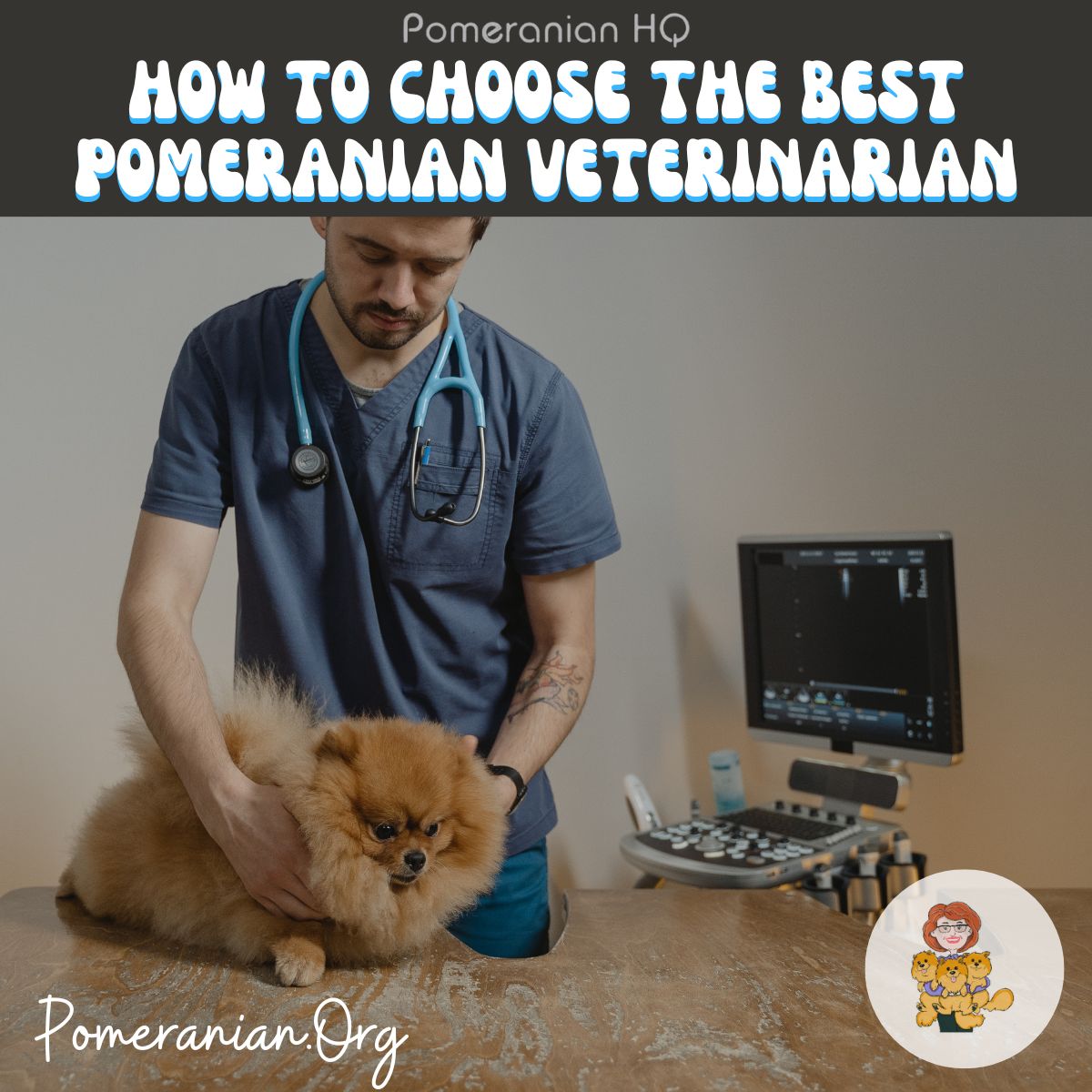
Final Thoughts
Ensuring the health and well-being of your Pomeranian involves more than just love and care; it requires the expertise of a seasoned Pomeranian veterinarian.
Their specific knowledge of the breed’s nuances and unique needs can be the difference between early problem detection and prolonged issues.
Responsible pet owners must prioritize regular check-ups and consultations with a trusted Pomeranian veterinarian to ensure their furry companion leads a long, happy, and healthy life.
Copyright Pomeranian.org
References and Further Reading:
[1] Official Standard of the Pomeranian (AKC). American Kennel Club, 2011.
[2] English Kennel Club Pomeranian Breed Standard, 2017.
[3] Denise Leo, The Pomeranian Handbook.
[4] Milo G. Denlinger “The Complete Pomeranian.”
[5] Kimbering Pomeranians “1891-1991”.
[6] William Taplin’s “The Sportsman’s Cabinet.”
[7] E. Parker “The Popular Pomeranian.”
[8] Lilla Ives “Show Pomeranians.”
